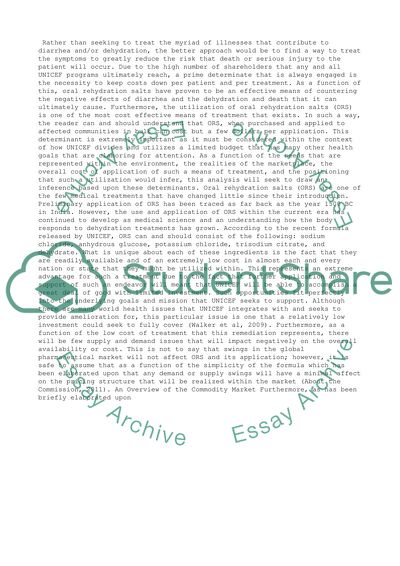Cite this document
(“Situational analysis for UNICEF Supply Division Assignment”, n.d.)
Situational analysis for UNICEF Supply Division Assignment. Retrieved from https://studentshare.org/management/1470394-situational-analysis-for-unicef-supply-division
Situational analysis for UNICEF Supply Division Assignment. Retrieved from https://studentshare.org/management/1470394-situational-analysis-for-unicef-supply-division
(Situational Analysis for UNICEF Supply Division Assignment)
Situational Analysis for UNICEF Supply Division Assignment. https://studentshare.org/management/1470394-situational-analysis-for-unicef-supply-division.
Situational Analysis for UNICEF Supply Division Assignment. https://studentshare.org/management/1470394-situational-analysis-for-unicef-supply-division.
“Situational Analysis for UNICEF Supply Division Assignment”, n.d. https://studentshare.org/management/1470394-situational-analysis-for-unicef-supply-division.


